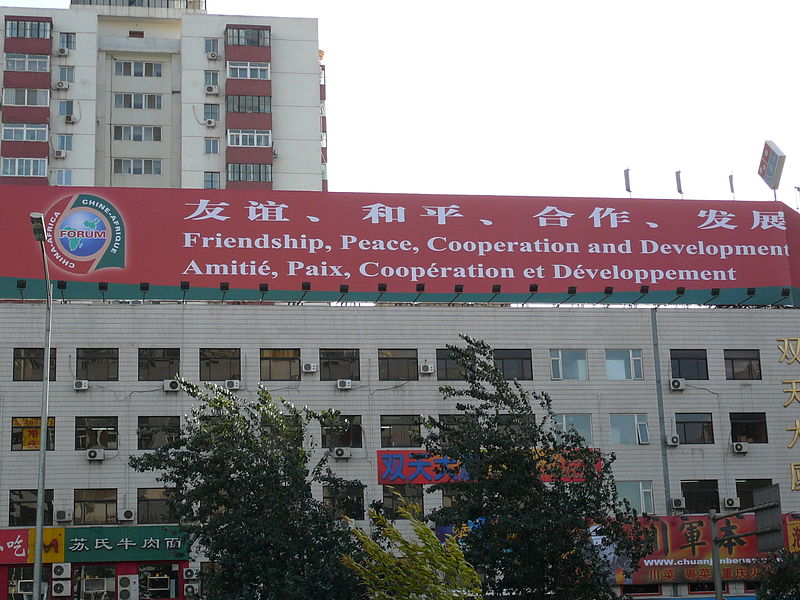
April 9, 2014, by Tony Hong
Building Images: exploring 21st century Sino-African dynamics through cultural exchange and translation
By Dr. Xiaoling Zhang,
Head of Contemporary Chinese Studies at the University of Nottingham Ningbo China,
Associate Professor in Chinese Studies at the University of Nottingham.
The rapid expansion in Chinese involvement in Africa in the 21st century has been accompanied by conflicting discourses about what that interest means, both for Africa and for the West. While Chinese and African leaders have consistently promoted the idea of a partnership based on mutual benefit, many journalists and the majority of Western leaders have sounded cautionary notes of alarm, some even going so far as to label China a ‘rogue donor’. Academic research has sought to interrogate some of the myths that have sprung up around Sino-African co-operation, and has taken the form primarily of case studies of Chinese trade, development and aid in selected African countries, with some more recent studies also focusing on the expansion of China’s ‘soft power’. Within all these discussions, one essential aspect of Sino-African interaction has gone largely unstudied: issues of translation, both in the narrower sense of how Chinese and African people communicate and in the broader, metaphorical sense of how African culture is ‘translated’ for the Chinese, and vice versa, have received little or no critical attention. Yet such translations form a critical part of all co-operation, and ‘translations’ of culture in the broader sense are becoming increasingly prominent in the agendas of the political leaders: cultural exchanges and ‘cultures-in-focus’ events now feature strongly in official programmes of Sino-African co-operation.
Funded by Arts and Humanities Research Council (AHRC) from March 2014, Dr Kathryn Batchelor from the School of Culture, Language and Area Studies and Dr Xiaoling Zhang from the School of Contemporary Chinese Studies, both at the University of Nottingham, aim to address this gap, seeking to identify the dominant images of Africa that are being ‘translated’ for the Chinese and vice versa, and to explore questions of agency in the translation process (who decides what is to be translated, for whom, and for what reasons). In light of the incredible size, complexity and diversity of both China and Africa, their project can only provide indicative, rather than comprehensive, responses to these questions, and in this respect it may be viewed as a pilot study which will unearth as many new questions as it will provide answers.
The project consists of two interrelated parts. Firstly, it will involve a global survey of literary translation, identifying all African literature translated for China since 2000, and all Chinese literature made available to African audiences over the same period. It will explore the types of themes that dominate, and identify any that are consistently excluded, and will examine the ways in which the reading matter is framed for its new audiences through covers, prefaces, and blurbs. Secondly, the project will study the translation of other types of cultural and media products, such as films, TV programmes, performances, exhibitions and newspapers across several geographically and temporally limited spaces in both China and Africa, once again paying attention to the types of cultural products and themes that are favoured and exploring the ways in which they are ‘translated’, both literary and metaphorically, for the new audiences.
Through this combined approach the project thus aims to identify both the principal translation patterns that hold between China and Africa today and the predominant images that each side is forming of the other. Grounded on the premise, developed and repeatedly confirmed through translation studies research, that translation carries an indicative function, or in other words, that it can reveal as much about cultures and intercultural dynamics as it is itself shaped by them, the study thus aims to enhance academic and popular understanding of the Sino-African relationship.
No comments yet, fill out a comment to be the first

Leave a Reply